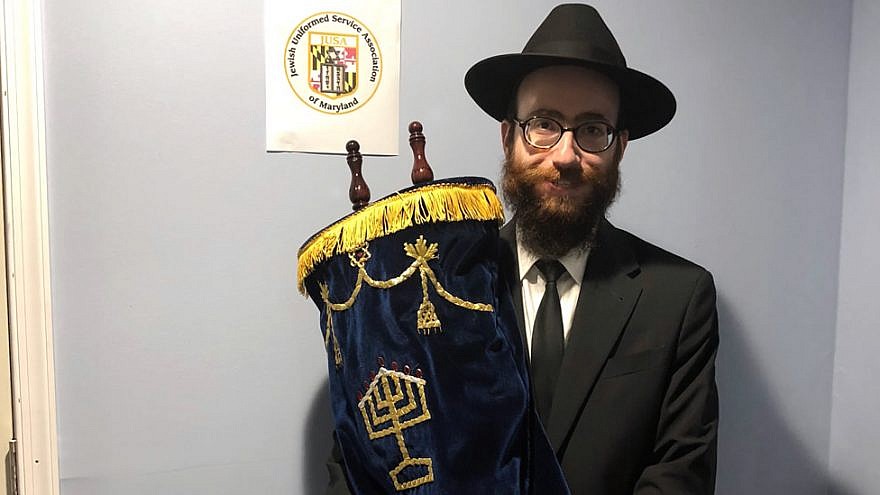After losing his brother—an American soldier who served in active combat in Afghanistan—more than a decade ago, Michael Steininger wanted to honor that service by donating a Torah, which he bought from a now-defunct synagogue that he belonged to in suburban Baltimore.
But due to the high costs associated with the repair of the 50- to 75-year-old scroll, he had to find someone who could fix it affordably before he could designate it in the memory of his brother, Martin Steininger, who died stateside at the age of 38.
“It was a no-brainer,” said Bentzion Chanowitz, who runs the Beis Yisroel Torah Gemach in Brooklyn, N.Y., which repairs and lends Torahsto Chabad-Lubavitch emissaries throughout the world. The organization is overseen by Merkos Suite 302 in the Crown Heights neighborhood of Brooklyn, N.Y.
The goal of a gemach, or free-loan fund, is to help other Jews, fiscally and often materially.
The Torah gemach, Chanowitz has gone on record explaining, “was born because of a real need. I saw that many emissaries weren’t able to secure a Torah, either when they were first starting out or even in other places, smaller or more remote places. And so, they couldn’t have a proper service when the Torah is supposed to be read in synagogue.”
He said 130 Torahs are in circulation, with 190 loans conducted overall (some have gone out multiple times) in the seven years he’s been organizing the gemach. The Torah that Michael Steininger donated is the first time a scroll has been designated in memory of an American Jewish soldier, said Chanowitz. It also honors a patriotic family that has had seen generations of service to the U.S. military.
Chanowitz also connected Steininger with Rabbi Yechezkiel (“Chesky”) Tenenbaum, chaplain of the Maryland Defense Force, which is part of the Maryland Military Department.
The rabbi, who has been living in Baltimore since founding the Jewish Uniformed Service Association of Maryland (JUSA) in 2012, affiliated with Chabad of Maryland, provides spiritual guidance to Jewish military members, police officers, firefighters and public-safety workers. Tenenbaum serves as director of JUSA.
He said he happened to call Chanowitz about a year ago to request getting a Torah, “right around the same time” that Steininger called Chanowitz about giving one. And so, this one has been sent on a six-year loan to JUSA.
“Divine providence led to this actually happening,” said the rabbi.
Tenenbaum noted that the Torah, which he received a few weeks ago, will be used for the first time during Rosh Hashanah, the Jewish New Year, which starts after sundown on Sunday, Sept. 9, and ends after sundown on Tuesday, Sept. 11. Most of the 100 or so congregants, he says, are religiously unaffiliated.
“[Serving them] is something that is very dear to my heart, as it’s something that I can do for them since they’re there day in and day out,” said Tenenbaum. “Doing the biggest mitzvah anybody can do is to be ready to give your life to help somebody else.”
Holding services and offering support, he said, “is the little bit I can do to give back to them.”


























